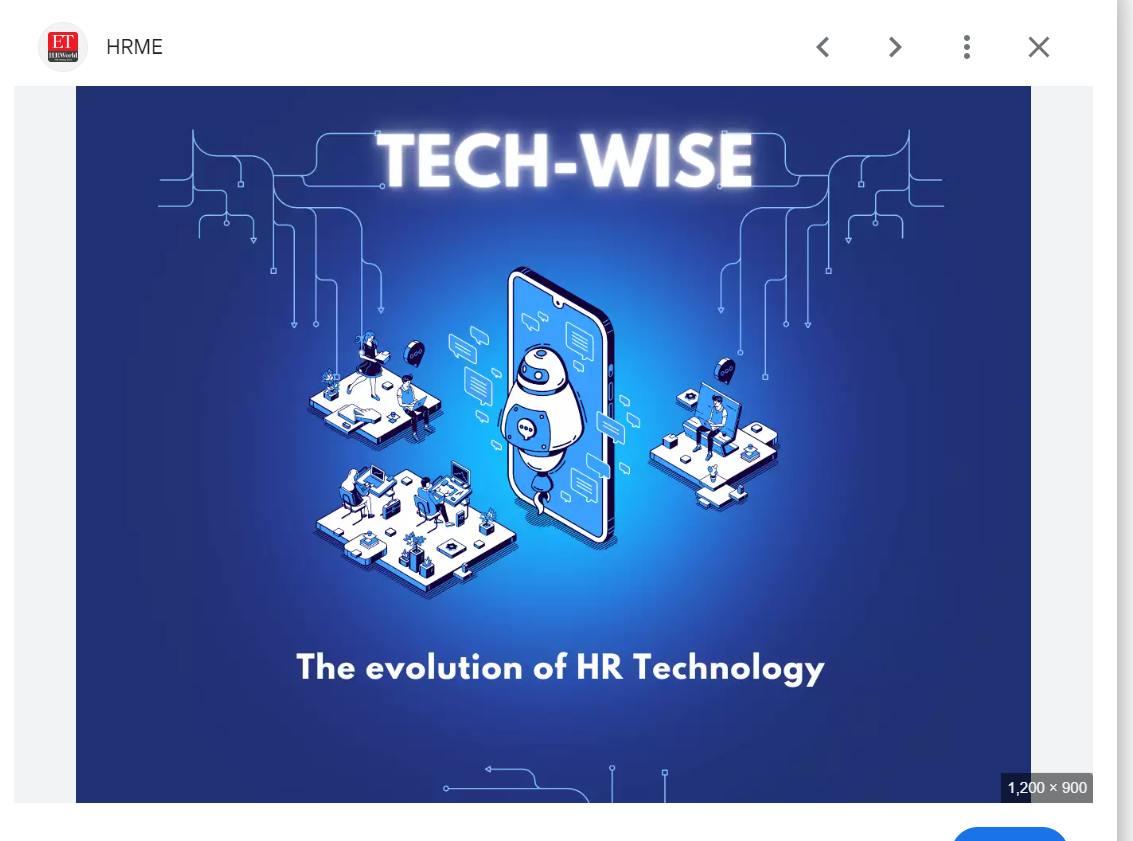The Future of HR: New Technologies You Need to Know
 Dorris Maina
Dorris Maina
In today’s rapidly evolving business landscape, Human Resources (HR) departments are under increasing pressure to innovate and adapt. Technological advancements, such as artificial intelligence and cloud computing are transforming the traditional functions of HR—recruitment, employee management, payroll, and benefits administration, increasing an organization’s efficiency and improving customer experience. This article explores the latest HR technology trends that are revolutionizing the field and how firms can leverage them to enhance their effectiveness, reduce costs, and create a productive work environment.
Remote and Hybrid Workplaces
Many organizations are transitioning to the hybrid work models while others are fully committing to the remote working model. The restrictions imposed during the COVID-19 pandemic facilitated this shift. Hybrid and remote work models facilitate work-life balance and motivate employees to boost their productivity. It also helps organizations to create a geographically dispersed workforce and attract talent from different regions.
For smooth and successful transition, firms are redesigning their workplaces and roles. For instance, they are creating interactive multimedia content to improve internal communication. Platforms like Slack, Microsoft Teams, and Zoom have become essential for communication and collaboration among remote teams. HR departments can leverage these tools to conduct virtual meetings, training sessions, and even onboarding. They can also use tools that track employee productivity and engagement remotely to ensure that remote employees remain connected and productive without feeling micromanaged.
Employee Self-Service Portals
Employee self-service (ESS) portals have become a standard feature in modern HR technology stacks. These platforms empower employees to manage their personal information, benefits, and payroll without needing to go through HR. Workers can also request for leave and time-off independently. ESS portals improve efficiency and give employees more control over their work experience.
For instance, they can access their information and complete HR-related tasks at any time, reducing the need for HR intervention. Additionally, ESS portals offer integrated benefits management by including tools for managing health insurance, retirement plans, and other benefits, making it easier for employees to understand and make changes to their benefits packages.
HR Analytics and Big Data
A significant advancement in HR technology is the use of analytics and big data. HR departments now have access to vast amounts of data related to employee performance, engagement, turnover rates, and more. By leveraging HR analytics, organizations can make data-driven decisions to improve recruitment and training processes, enhance employee retention, and identify potential leaders within the company.
Predictive Analytics: Predictive analytics tools enable HR teams to anticipate future trends and challenges. For example, by analyzing historical data, HR can predict which employees are most likely to leave the company and take proactive steps to retain them.
Employee Sentiment Analysis: Using natural language processing (NLP) and sentiment analysis tools, HR can gauge employee morale and satisfaction by analyzing communications such as emails or surveys.
Artificial Intelligence and Machine Learning
Artificial Intelligence (AI) and Machine Learning (ML) are transforming various HR processes, from recruitment to employee development. These technologies enable HR departments to automate routine tasks, allowing them to focus on more strategic activities. For example, AI can streamline the recruitment process by scanning resumes, ranking candidates, and even conducting initial interviews. This reduces bias and speeds up the hiring process.
Machine learning algorithms can facilitate personalized learning and development by recommending personalized learning paths for employees based on their skills, interests, and career goals. This process ensures that training programs are more effective and relevant.
Digital Learning and Development
Learning and development equips employees with new skills, sharpens their existing ones, and keeps them up to date, increasing their productivity, efficiency, and satisfaction. Organizations are digitizing the learning process to accommodate employees working remotely and achieve better outcomes.
Cloud-Based HR Management Systems
Cloud technology has revolutionized how HR departments operate by providing scalable, flexible, and cost-effective solutions. Cloud-based HR information Systems (HRIS) and HR Management Systems (HRMS) integrate all HR functions into a single platform, making it easier to manage and access HR data. The former simplify record keeping and data management while the latter focus on the broader HR processes, such as recruitment and training.
These could-based systems can easily scale to accommodate the growth of an organization, ensuring that HR processes remain efficient as the company expands. They also allow HR teams to access real-time data from anywhere, enabling more agile decision-making and improving the overall responsiveness of the HR function. Furthermore, this technology automates time-consuming or repetitive tasks, allowing these professionals to focus on more important roles like improving employee interrelations.
Employee Engagement Platforms
Employee engagement is a critical factor in organizational success, and technology plays a key role in fostering a positive work environment. Employee engagement platforms provide HR teams with tools to measure and enhance engagement levels. Excellent examples include:
Pulse Surveys: These platforms allow HR to conduct regular pulse surveys to measure employee satisfaction and engagement. The data collected can be used to make timely interventions and improvements.
Recognition and Reward Systems: Employee recognition platforms enable peer-to-peer recognition and reward programs, boosting morale and creating a positive company culture.
Blockchain for HR
Blockchain technology, although still in its early stages of adoption in HR, has the potential to revolutionize the way HR processes are managed. Blockchain can enhance transparency, security, and efficiency in various HR functions.
Credential Verification: Blockchain can be used to verify educational qualifications and work experience, making the recruitment process faster and more secure.
Payroll Management: Blockchain can streamline payroll processes, especially for companies with a global workforce, by providing secure and transparent transactions across borders.
Conclusion
The integration of technology into HR is a necessity. The latest HR technologies, from AI and analytics to remote working tools and cloud-based systems, are enabling HR departments to become more strategic. By leveraging these technologies, HR managers can not only improve efficiency and productivity but also enhance the overall employee experience and contribute to the company’s long-term success.
As the field of HR continues to evolve, staying up-to-date with the latest technologies and trends will be crucial for any organization looking to maintain a competitive edge in the market. Embracing these advancements will not only benefit HR professionals but will also create a more engaged, productive, and satisfied workforce.
Subscribe to my newsletter
Read articles from Dorris Maina directly inside your inbox. Subscribe to the newsletter, and don't miss out.
Written by
